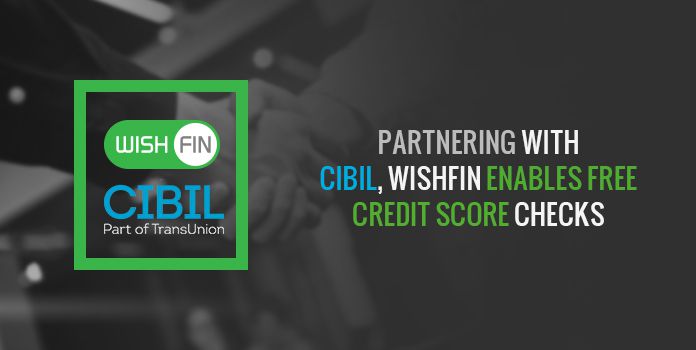
A Personal Loan is an unsecured loan given by a bank or non-banking monetary organisation (NBFC) to a person based on key measures, for example, pay level, record as a consumer, reimbursement limit, business history, and other important elements that will quite often shift from a moneylender to another. Otherwise called a mark loan, a personal loan is stretched out to salaried and independently employed people based on an informed decision made by the loan-endorsing official based on documentation presented by the candidate.
One should have a normal type of revenue to benefit from a personal loan, whether you are a salaried individual, an independently employed financial specialist, or an expert. An individual’s qualification is likewise impacted by the organisation they are utilised with, their record of their private area, and different variables according to the bank’s models.
Personal loans highlight a residency of 1 year to 5 years or 12 to 60 months. In uncommon cases, the borrower might permit more limited or longer personal loan residencies depending upon the situation.
CIBIL Score
The CIBIL Score is one of the significant factors and measures in getting this truly necessary admittance to credit. A CIBIL Score is a customer’s FICO rating. A Customer can also check CIBIL Score Online through various Credit Score Apps. This is a three-digit numeric synopsis of a purchaser’s record of loan repayment and an impression of the individual’s credit profile. This depends on past acknowledged conduct, for example, getting reimbursement propensities imparted by banks and moneylenders to CIBIL consistently (the subtleties of which are highlighted in the buyer’s CIBIL Report).
The score depends on subtleties found in the ‘Records’ and ‘Enquiries’ segments of the CIBIL Report, including (however not confined to) advance records or charge cards, instalment situations with sums, and days past the due date. Going from 300 to 900, the nearer a CIBIL Score is to 900, the higher are the possibilities of the customer’s Mastercard or credit application getting supported.
An individual’s previous way of behaving is taken as a mark of their future activities, and, per that, the CIBIL Score exhibits a customer’s reliability. For instance, when an individual applies for a charge card or advance, one of the banks’ significant variables is the credit profile of the individual, as portrayed by the CIBIL Score.
Reasons why Banks reject personal loans even when the credit score is high:
- Remarks in CIBIL Reports – notwithstanding a mathematical score, CIBIL reports likewise contain comments and remarks by loan specialists. Banks sometimes offer you the choice to settle your credit for a marginally more modest sum than all of your EMIs consolidated or offer loan fee decreases, and so on to assist you with clearing your obligation. If you settle your credit in any capacity separated from the terms on which you took the credit, there will be a comment about it in your CIBIL report, which will neutralise you. On the off chance that any notice of advances is being “discounted” or “settled” or sums being paid after the due date (“DPD” = Days Past Due), banks take these as advance notice signs and will dismiss your credit.
- Standing underwriter on a defaulted credit – An underwriter is viewed as answerable for advance reimbursement (regardless of whether or not in a simply strict limit) as the borrower. Assuming you have stood underwriter to a credit that has been defaulted, this will influence your CIBIL score and report negatively.
- Default subtleties coordinating – Banks and monetary foundations keep up with records that contain the name, age, address, current business, and different subtleties of people who have defaulted on their instalments. Assuming that the subtleties you have submitted are (even erroneously) coordinated with a defaulter, you will be denied credit before the bank checks your CIBIL rating. There have been occurrences where the individuals who have moved into houses recently were involved by defaulters and presented that addresses have been coordinated with the “address” records of defaulters, choking out their possibilities of getting credit.
- On the off chance that you are over leveraged – You can relegate a specific measure of your proclaimed pay to clearing obligations. Assuming you procure Rs.50,000 each month and have three different advances you’re clearing by paying Rs. 10,000 each, you’re left with Rs. 20,000 for endurance and individual consumption. Banks won’t support another credit and will consider you overleveraged. Your DTI (relationship of debt to salary after taxes) will be horrible, and you can not distribute a greater amount of your pay to tidying up your new credit.
- Insufficient duty paying history – Banks, by and large, favour applications from individuals who have effectively documented personal expenses for around two years before the application. It is more straightforward to pass judgement on the reliability of such people as there is a current record separated from CIBIL that can bump them in the correct course.
- Over-getting – If you have taken out an excessive number of advances in the earlier year, whether or not you had the option to respect them, banks won’t endorse your advance as they consider such people credit-hungry. Even though your record is perfect, you will be viewed as a dangerous up-and-comer who can default whenever.
Conclusion
CIBIL scores, you can also check it from CIBIL Score App. while they have an enormous impact simultaneously, are just some of the things banks check before endorsing your credit. You must know that Got credits are those taken against protections like resources or with an underwriter (home credits, car advances, and so forth), and unstable advances are taken with no security (individual credits, Visas, and so on.). A good ratio would have more credits than unstable ones. This is leads to the ratio of tied-down advances to unstable credits.



